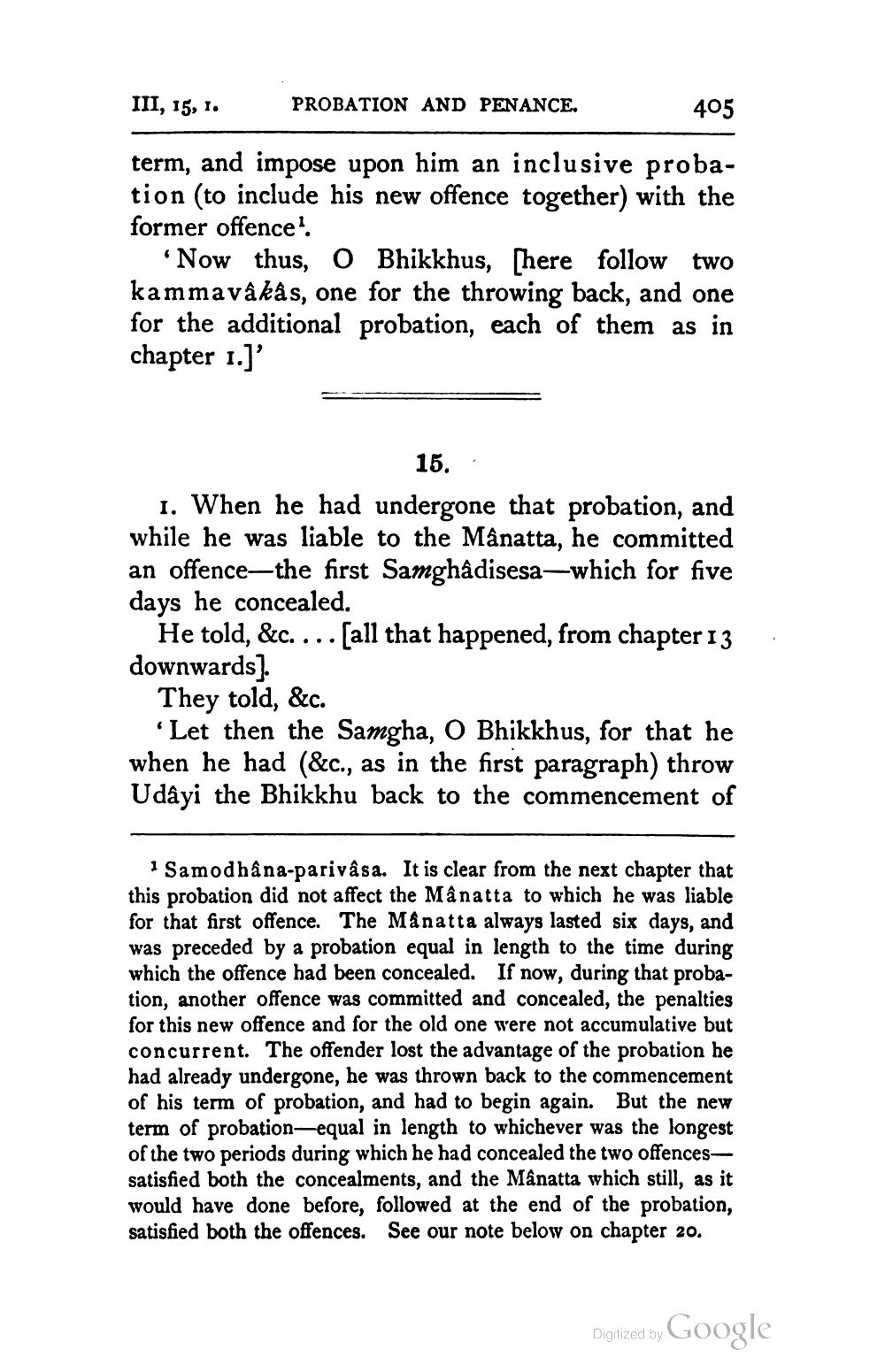________________
III, 15, 1.
PROBATION AND PENANCE.
405
term, and impose upon him an inclusive probation (to include his new offence together) with the former offence?
Now thus, o Bhikkhus, here follow two kammavâkâs, one for the throwing back, and one for the additional probation, each of them as in chapter 1.]'
15.
1. When he had undergone that probation, and while he was liable to the Mânatta, he committed an offence—the first Samghâdisesa—which for five days he concealed.
He told, &c. ... [all that happened, from chapter 13 downwards).
They told, &c.
Let then the Samgha, O Bhikkhus, for that he when he had (&c., as in the first paragraph) throw Udâyi the Bhikkhu back to the commencement of
.
1 Samodhâna-parivâsa. It is clear from the next chapter that this probation did not affect the Mânatta to which he was liable for that first offence. The Månatta always lasted six days, and was preceded by a probation equal in length to the time during which the offence had been concealed. If now, during that probation, another offence was committed and concealed, the penalties for this new offence and for the old one were not accumulative but concurrent. The offender lost the advantage of the probation he had already undergone, he was thrown back to the commencement of his term of probation, and had to begin again. But the new term of probation-equal in length to whichever was the longest of the two periods during which he had concealed the two offences satisfied both the concealments, and the Manatta which still, as it would have done before, followed at the end of the probation, satisfied both the offences. See our note below on chapter 20.
Digitized by
Digilzed by Google




